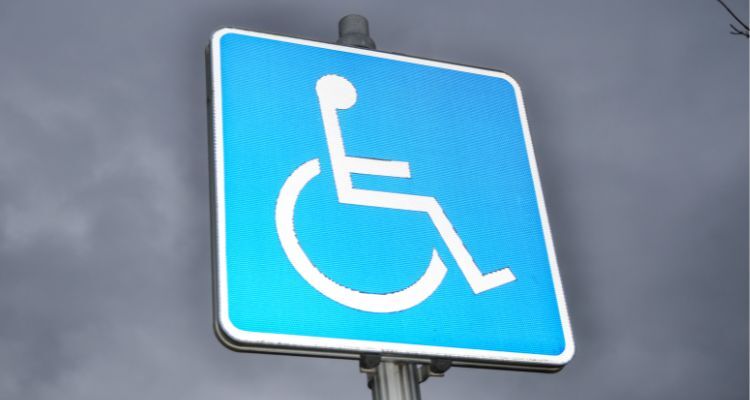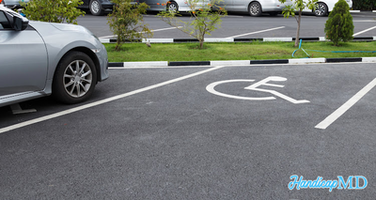
Myths vs. Facts: Debunking Common Misconceptions about Handicap Placards in California
Disability tags, often referred to as handicap placards, are crucial for many people with disabilities, granting them access to designated parking spaces that make navigating everyday activities more manageable. However, there are many myths and misconceptions about who qualifies for a disability tag, how it can be used, and what the rules are in CA. Misunderstandings can lead to confusion, misuse, or even judgment from others. This article seeks to dispel common myths and clarify the facts about handicap placards in California, ensuring that everyone understands the rights and responsibilities associated with these essential tools.
Introduction to Handicap Placards in California
In CA, disability tags are issued to individuals with qualifying physical or medical conditions to ensure that handicap parking is accessible for those who truly need it. These tags come in the form of placards or special license plates and are regulated by the state Department of Motor Vehicles (DMV). Despite their widespread use, disability tags are often misunderstood, leading to myths and misconceptions that create stigma or unnecessary obstacles for tag holders.
Types of Disability Tags in CA
CA offers several types of handicap permits to accommodate a range of needs:
- Permanent Tags: For individuals with long-term disabilities, renewed automatically every two years.
- Temporary Tags: Valid for up to six months, intended for individuals with short-term disabilities or temporary medical conditions.
- Disabled Person License Plates: Permanent license plates for vehicles registered to individuals with disabilities.
- Travel Tags: For residents who already have a permanent tag but need a temporary one while traveling.
Each of these tags has unique application processes, and the documentation required may vary based on the tag type.
Eligibility Requirements for a Disabled Permit in California
Eligibility for a disability tag in CA requires a medical condition that limits mobility. Qualifying conditions include:
- Use of a wheelchair, cane, walker, or similar mobility aid.
- Severe lung disease, respiratory conditions, or oxygen dependence.
- Visual impairment as verified by a healthcare provider.
- Cardiac conditions classified as Class III or IV by the American Heart Association.
- Any condition that requires the person to limit their walking distance.
Eligibility is confirmed by a licensed physician or other approved medical professional who completes a certification form as part of the application.
How to Apply for a Disability Tag in California
Applying for a California handicap placard is a straightforward process:
- Download or Pick Up an Application: The application (REG 195) is available on the California DMV website or at a local DMV office.
- Complete the Medical Certification: A licensed HandicapMD healthcare provider must complete the medical section, confirming your qualifying condition.
- Submit the Application: You can mail it to the DMV or submit it in person. Permanent placards are issued free of charge, while certain fees may apply for disability license plates.
How to Obtain a Permit Online with HandicapMD.com
HandicapMD.com offers a convenient telehealth service that simplifies the process of getting your disabled parking permit by allowing you to:
- Sign Up: Visit the HandicapMD.com website and fill out the necessary form to schedule a consultation.
- Consultation: A certified doctor will assess your medical records and determine whether you meet the eligibility criteria.
- Medical Certification: The doctor will complete the certification section of the application (REG 195).
- Submit Your Application: Once your form is completed, submit it to the state's DMV either in person or by mail.
Why Getting the Permit Online is Beneficial
- Convenience: With HandicapMD.com, you don’t need to visit a doctor’s office. You can complete the entire process from home.
- Expertise: HandicapMD doctors specialize in understanding ADA guidelines and determining eligibility for disabled permits, ensuring a smoother process.
- Efficiency: The service allows for quick evaluations, helping you get your permit faster than traditional method.
Common Myths About Handicap Placards in California
Misunderstandings about handicap placards often lead to unwarranted judgment or incorrect usage. Let’s take a look at some of the most common myths and the facts that debunk them.
Myth #1: Disability Tags Are Only for People in Wheelchairs
Fact: This is one of the most pervasive myths. While many individuals who use wheelchairs qualify for disability tags, they are not the only ones eligible. Disability tags are available to anyone who has a significant mobility limitation, even if they don’t require a wheelchair. Conditions like chronic heart disease, severe arthritis, or respiratory issues can make walking difficult, qualifying a person for a tag.
In fact, many people who need disability tags can walk short distances but struggle with longer walks or uneven surfaces. Just because someone appears to walk “normally” doesn’t mean they don’t need the accessible parking space.
Myth #2: Family Members Can Use Disability Tags Even Without the Disabled Person Present
Fact: It is illegal to use a disability tag if the person it was issued to is not in the vehicle. This myth causes significant misuse and can result in fines, suspension of the tag, or even criminal charges. The purpose of the disability tag is to assist the person with the disability, not to provide convenience to family members or friends.
CA law is strict about this rule to prevent abuse and ensure that accessible parking spaces are available for those who truly need them.
Myth #3: Temporary Conditions Don’t Qualify for Disability Tags
Fact: CA does offer temporary disability tags for individuals recovering from surgeries, injuries, or temporary conditions that significantly limit mobility. For example, someone recovering from a broken leg or major surgery may qualify for a temporary disability tag that lasts up to six months. If the condition persists, the tag can be renewed with updated medical certification.
Temporary tags help ensure that people with short-term needs still have access to accessible parking.
Myth #4: Disability Tags Allow Parking Anywhere for Free
Fact: While disability tags provide specific parking benefits, they do not grant unlimited free parking everywhere. In CA, disability tags allow holders to park in:
- Designated accessible parking spaces marked by the wheelchair symbol
- Metered spaces without payment (in most cities, but some exceptions may apply)
- Time-restricted parking zones for extended periods (in some cases)
However, the tag does not allow parking in loading zones, tow-away zones, or spaces reserved for emergency vehicles. Misusing the tag to park illegally can result in fines and the possible revocation of parking privileges.
Myth #5: People Who Appear “Healthy” Don’t Deserve Disability Tags
Fact: Disabilities are not always visible. Many people with chronic conditions, such as severe arthritis, lung disease, or heart conditions, may look “healthy” but experience significant pain or physical limitations. Judging someone based on appearances can perpetuate harmful stereotypes and stigmatize individuals who legitimately need their disability tags.
The DMV and medical professionals take the eligibility process seriously, and if someone has a tag, they likely have a certified condition that warrants it.
Myth #6: Disability Tags Are Easy to Obtain Without Real Need
Fact: One of the most widespread misconceptions is that obtaining a disability tag in CA is simple and that people frequently acquire them without genuine need. The reality is that the state Department of Motor Vehicles (DMV) has strict regulations in place to prevent misuse.
Application Process:
- Applicants must submit the Application for Disabled Person Placard or Plates (Form REG 195), which includes medical certification from a licensed healthcare professional.
- The physician must detail the specific condition that qualifies the applicant under CA state law, such as the inability to walk 200 feet without rest or the use of a mobility aid.
Verification:
- The DMV reviews all applications and reserves the right to request further information or deny applications that do not meet the established criteria.
Myth #7: Disability Tags Are Permanent for Everyone
Fact: Not all disability tags are permanent. In CA, there are different types of disability tags, each with its own expiration and renewal requirements.
Types of Disability Tags in CA:
- Permanent Tags: Issued to individuals with long-term or lifelong disabilities and must be renewed every two years.
- Temporary Tags: For short-term conditions such as recovery from surgery. These are valid for up to six months and can be renewed with updated medical certification if needed.
- Disabled License Plates: Affixed to vehicles owned by individuals with disabilities or their family members who provide regular transportation.
Renewal Process: Permanent tags must be renewed every two years, but they do not require medical recertification unless specified by the DMV. Temporary tags, on the other hand, require a new application and updated medical verification for each renewal.
Myth #8: The DMV Rarely Checks for Fraudulent Use
Fact: The state DMV and local law enforcement agencies take fraudulent use of disability tags very seriously. There are enforcement sweeps and audits specifically designed to identify and penalize misuse.
Enforcement Measures:
- Routine checks and targeted operations are conducted to ensure that only eligible individuals use disability tags.
- Individuals found using a tag that does not belong to them may face fines, community service, and revocation of the tag.
Reporting Fraud: Residents who suspect misuse can report it to the state DMV’s Investigations Division or local authorities. This helps maintain the integrity of the program and ensures that accessible parking is available for those who truly need it.
Myth #9: You Don’t Need to Renew a Permanent Tag
Fact: While permanent tags do not require medical recertification for renewal, they must still be renewed every two years. Failing to renew your tag can result in losing your parking privileges.
Renewal Process:
- The state DMV sends a renewal notice before the expiration date. While the process is straightforward, it is the responsibility of the authorized holder to complete the renewal.
What to Do If You Miss the Renewal Deadline: If your tag expires, you will need to submit a new application to the DMV, which may require additional processing time.
Myth #10: Temporary Placards Are Automatically Renewable
Fact: Temporary tags are issued for specific, short-term disabilities and are valid for up to six months. They are not automatically renewable and require a new application with updated medical certification if the condition persists beyond the initial permit period.
Reapplying for a Temporary Tag:
- Fill out Form REG 195 and have the medical certification section completed by your physician.
- Submit the application to the California DMV, either in person or by mail.
Myth #11: You Can Park in an Accessible Space If Your Tag Isn’t Displayed Correctly
Fact: Your disability tag must be clearly displayed for it to be valid. In CA, this means hanging it from the rearview mirror so that it is visible through the windshield. Tags should be removed when the vehicle is in motion to prevent obstructed vision.
Consequences of Incorrect Display:
- Failure to display the tag correctly can result in a parking ticket, even if you are eligible to use accessible parking.
- If the tag is damaged or the identifying information is illegible, you should apply for a replacement through the DMV to avoid potential fines.
Myth #12: Disability Tags Are Only for Physical Disabilities
Fact: While physical impairments are the most common reason for obtaining a disability tag, they are not the only qualifying conditions. CA recognizes a variety of disabilities, including severe respiratory issues, certain cardiac conditions, and other medical conditions that limit mobility or the ability to walk.
Qualifying Conditions Include:
- Neurological disorders.
- Severe arthritis.
- Chronic pain conditions that impair mobility.
- Vision impairments that legally qualify as blindness.
Medical Certification: A licensed healthcare professional must attest that the condition significantly limits the applicant’s mobility and warrants the need for a disability tag.
Understanding the Rules: Proper Use of Disability Tags
To make the most of your disability tag and remain compliant:
- Always Display the Tag Correctly: Hang the tag from the rearview mirror when parked and remove it when driving.
- Use the Tag Only When Needed: The tag is for the benefit of the person with the disability. Misuse, such as using the tag to park in an accessible spot when the person with the disability is not present, is illegal.
- Adhere to Parking Regulations: While metered parking is often free, always check local ordinances to avoid fines.
Common Misunderstandings About Parking Privileges
Another common misconception is that disability tags grant access to all restricted parking areas. It’s important to understand that:
- Loading Zones: You cannot park in these areas, even with a disability tag.
- Emergency Spaces: Reserved for emergency vehicles only, these areas are off-limits.
- Red and Yellow Zones: No parking is allowed in these zones, and disability tags do not provide exceptions.
Knowing where you can and cannot park is crucial to avoid misunderstandings and penalties.
Reporting Misuse and the Impact of Fraudulent Use
Misuse of disability tags, whether by family members or individuals faking a disability, undermines the system and takes accessible parking spaces away from those who need them. If you witness suspected misuse, you can report it to local law enforcement or the DMV. Be sure to note the vehicle’s license plate number and the location of the violation.
Fraudulent use of disability tags can result in severe consequences, including fines up to $1,000 and the suspension of parking privileges.
The Importance of Respecting Disability Tags and Their Holders
Respect and empathy go a long way in supporting people with disabilities. Accessible parking spaces are not a luxury; they are a necessity for individuals who face mobility challenges. By debunking myths and understanding the facts, we can create a more inclusive and compassionate community.
Judging someone based on how they look or questioning their need for a disability tag perpetuates stigma. Always assume that if someone has a tag, they have a legitimate reason for it.
FAQs About Disability Tags in California
Q1: Can I use my disability tag in another vehicle?
Yes, as long as you are in the vehicle, either as the driver or passenger. The tag is tied to you, not a specific car.
Q2: Can a temporary tag be extended if my condition doesn’t improve?
Yes, you can renew a temporary tag with updated medical certification. The new form must be submitted to the DMV.
Q3: How do I replace a lost or stolen disability tag?
Report the loss or theft to the DMV and complete an application for a replacement tag. You may also need to provide proof of identity.
Q4: Are there penalties for misusing a disability tag?
Absolutely. Penalties include fines up to $1,000, suspension of the tag, and even criminal charges for fraudulent use.
Q5: Do disability tags allow parking at airport curbsides?
No, disability tags do not permit parking in restricted areas like airport curbsides, which are designated for loading and unloading only.
Q6: Can I park for free at metered spaces with a disability tag?
Generally, yes, but it’s best to check with local ordinances as rules can vary between different cities.
Conclusion: Promoting Awareness and Understanding
Understanding the myths and facts about handicap placards in California can help both holders and the general public better appreciate the purpose and regulations surrounding these important permits. Proper usage ensures that accessible parking spaces are available to those who need them most and helps maintain the integrity of the system.
If you or someone you know holds a disability tag, make sure to follow all guidelines for application, display, and usage. Educating yourself and others about the realities of disability tags helps foster a more inclusive and respectful community. Always adhere to the state DMV regulations to avoid fines, penalties, or loss of privileges.
By debunking these common misconceptions, we can create greater awareness and ensure that disability tags continue to serve their essential function of providing easier access and mobility for individuals with disabilities.
.png)






